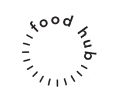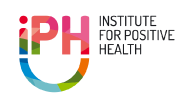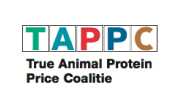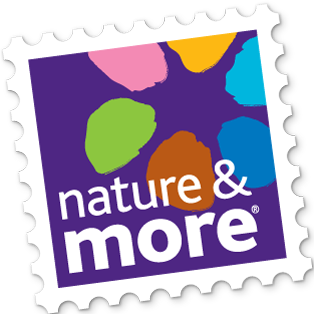Interview with Anna ‘Dr. Goodfood’ Kruyswijk
Anna Kruyswijk is the face of Dr. Goodfood and has developed the ten recipes for the campaign kick-off on 22 September. As a physician, she has worked with food for thirty years. We asked her all about her fascination for food, her views on medicine and her preference for organic food.
What sparked your interest in food?
‘As a child, I was very much into everything living and growing, and biology. I had my own vegetable garden when I was in school and you could find me walking around with plants all the time. For me it was only logical that I was part of this environment. When I studied medicine, I was very surprised to see that no attention was devoted to the inextricable connection between our body and our natural surroundings, such as food.’
‘I worked as a GP after I graduated, and for me, providing nutritional advice was self-evident. After a few years, I established a consultative practice where I worked as an integral physician, providing nutritional advice, lifestyle advice, and using natural remedies, herbs and supplements. Many children came to my practice, and among them was Steffi Haazen, who currently works as a dietician for the Dr. Goodfood campaign.’
‘I never denied my regular education, but I considered it to be insufficient and have added to it. I have always had a focus on the connection with knowledge from ancient traditions, such as Indian Ayurveda and Chinese traditional medicine. These medicinal systems have remained unaffected by time and are still applied successfully.’
How important do you consider the role of food to be for our health?
‘Food is the basis of health, because all of our cells function using food. Once you are sick, food may not be sufficient to restore health. There are exceptions, but usually more is required, such as supportive natural remedies, lifestyle adaptations and medicines as necessary.’
Why did you get involved in the Dr. Goodfood campaign?
‘As a physician, I have worked with food for thirty years, and I focus on using this knowledge to help people. More attention is required for the care of our health from the basis, and food plays an important role in this – initially for maintaining health, but food and lifestyle advice can also function as medicine. Currently medical science devotes virtually no attention to food, so we must combine forces and increase awareness. There is plenty of scientific proof for and broad consensus about the health effects of fruit and vegetables. Yet this is not used in medical science. I might turn this question around: give me one good reason why you should not support health using organic fruit and vegetables.’
Do you still have a general practice?
‘No, I discontinued my practice in 2008 to focus on education. Today I only treat my family as a GP to keep things up; I am currently involved in training therapists and physicians who are interested in expanding their knowledge about food. I am occasionally invited to universities, and I always hear the same response: however interesting, this is not evidence-based. I substantiate all I do with scientific research, but this is not hard evidence according to the guidelines.’
So how do you look at evidence-based medicine?
‘The thing is: there is no definition of ‘hard proof’ in medicine. Worse still, since Karl Popper there is no ‘hard evidence’ in science at all, all you might be able to do is falsify something. It is rather haphazard to take the randomized double blind placebo control (RDBPC) studies as the only criterion. Naturally, physicians must substantiate what they are doing, but the way in which this is currently done is one-sided and has considerable limitations. The hands of the medical establishment are tied when it comes to evidence-based medicine and the hierarchy of scientific verification involved. I am not the only one to think along these lines; famous cancer specialist Casper van Eijck is very interested in working with turmeric, but sees no opportunity to do so.’
How did you develop the ten recipes for the initiation of the campaign?
‘Many people suffer from complaints and conditions. They need guidelines to do something sensible about it, to prevent these complaints or to support recovery without immediately turning to medication. I developed recipes as part of this using an inverse method. Normally, you check what is available in the shop and use it for cooking. This time, I used literature about colds, cholesterol and other topics, to find information about the function of plant-based food and I used it to create recipes.’
‘I had never used this inverse method before and it really worked for me. The ten recipes are preventive and may be curative. I tried to keep things simple without using too many ingredients. The dishes can be combined with other dishes, and everyone is free to choose the protein source they prefer. I have developed some more recipes and I hope we will be able to publish some of them in the future.’
How do you substantiate your approach?
‘I read scientific research results in a broader scope than one single category of research. You are required to permit contextual evidence and think from a system approach, involving various influences on health, such as food and lifestyle. If you consider just one influence, as in regular medicine, you look for one cause and medicine. But if you consider the entire system that comprises a human being, you see that health and illness are a sum of causes. And this is exactly why health should be considered comprehensively. As a physician, I always worked from this breadth and with what is consistent in time. I used to teach my patients this: set out a consistent line and remain focused on your personal health with food, rest and exercise.’
Why is it that medicine is so little involved in food?
‘The one-sided emphasis on evidence-based medicine makes it all but impossible for primary physicians to apply alternative or natural remedies. You have to realise that, for a long time, Western medicine was not what it is today. Hippocrates, the founder of Western medicine, mainly worked with dietary and lifestyle interventions. We have lost much of this over the last 50 years. I was trained in the 1970s and was taught diets for certain disorders. After the advent of evidence-based medicine, all diets were cancelled because they could not be proven.’
‘The costs of the type of research that is the standard for hard evidence are enormous and can only be produced by the large pharmaceutical companies. As a result, these companies have gained some sort of exclusive right to ‘recovery'. Natural medicines are halted by lobbyists who argue that there is no ‘hard evidence’ yet, even if the circumstantial evidence is at 99% of this hard evidence and, as a physician with thirty years of experience, you’d stake your life on it. But developing these solutions does not involve a revenue model for the industry.’
This must be frustrating for dieticians and physicians looking to work with food.
‘Yes, certainly when you consider that pharmaceutical companies introduce new synthetic medicines in the market which are withdrawn after five years because of unforeseen side effects. Dieticians and physicians are not permitted to provide dietary advice as a remedy, although humanity has thousands of years of experience with this, and there is scientific evidence and practical experience confirming efficacy. If you can help people with a natural product, such as turmeric, why prohibit physicians from working with it?’
You were willing to take on the role of Dr. Goodfood, provided that you could declare yourself openly in favour of organic food. Why are you so emphatically in favour of organic?
‘There are two reasons: because of what is in it and what is not. Let’s start by considering what it principally does not contain: chemical-synthetic pesticide residue, artificial fertiliser, hormones, genetic engineering and antibiotics, such as glyphosate. A couple of weeks ago Monsanto was sentenced to a fine of 289 million dollars to be paid to an American gardener who contracted cancer after working with the weedkiller glyphosate – a.k.a. Roundup – for years. This lawsuit also demonstrated the serious conflict of interest between the chemical lobby and science that has become so serious that part of science can no longer be trusted. Yet the use of that very same agent has been permitted for another five years in Europe and The Netherlands, particularly thanks to the Dutch lobby in Europe.’
‘Pesticide residues often have an endocrine disruptive effect and have an adverse effect on the gut microbiome, the intestinal ecosystem which mainly consists of bacteria, as well as viruses and fungi. They can therefore promote obesity. And yes, organic agriculture also uses natural pesticides and some farmers tend to go the very edge, but research demonstrates that organic agriculture contains structurally less pesticide residue, and the residue found usually comes from conventional agriculture as a result of contamination. If you intend to follow the safest road, biodynamic agriculture is the best and cleanest way.’
And what do organic products contain that a physician can work with?
‘These mainly concern phytonutrients, which are vegetable nutriments, such as sulphoraphanes, polyphenols, flavonoids and curcuminoids. We have known about vitamins, minerals and trace elements which can be found in various nutriments for a longer time. Phytonutrients are found in plants only: the word ‘phyto’ means ‘plant’. We have known about the importance of phytonutrients for our health and our immune system for only 15 years. These are incredibly important substances that protect people against cardiovascular diseases and cancer. Many of these substances are antioxidants that are able to neutralise these injurious particles.’
‘Research shows that organic vegetable food is much richer in these substances. Often, they are substances that provide vegetables with a bright colour or the defensive substances plants produce. If you spray the plant, it is no longer required to defend itself and the production of these substances starts to decline. These substances help us to stay healthy: they function as auxiliaries people retrieve from their food. This has a preventive function.’
'The effects of the massive application of fertiliser at the start of the last century on health were described by a physician as early as 1940. Plants grow faster if fertilisers are used, but they may contain fewer phytonutrients. This physician wrote about the relationship between patients that became more ill and the increasingly weak food they ate. If you allow a plant to mushroom, you might ask yourself whether it has the time to produce the same substances as it would if it had been given the time to grow at its own pace. Organic agriculture does not use fertilisers.’
What do you think of the latest scientific insights concerning the immune system and digestion?
‘These new developments in the scientific field in relation to the gut microbiome are fascinating and confirm many older insights. It is becoming increasingly clear that the microbiome in the gut affects both our physical and mental health. In my practice, over the years I have experienced time after time how people with a depressive disorder or anxiety recover by treating their intestines. In natural medicine we have known this for a very long time, but it is now scientifically supported and presented as new.’
‘There is also a fascinating relationship between the health of the soil and soil life on the one hand, and the relationship between our health and gut life. In addition, there is a natural exchange between these two systems. If we destroy soil life, we weaken the health of our food. Our health depends on the health of the soil.’
‘We must maintain our gut microbiome using vegetable fibres, which is why it is so important to eat plenty of fruit and vegetables. Organic food is preferable because pesticides affect the microbiome.’
How can we ensure that we will have greater appreciation for the role of food?
‘By promoting people to become conscious. When you go grocery shopping, what do you put in your basket? You control what you eat, and there is no use finding fault with medical training courses or waiting for the government to take measures. I’d say: try eating organic food and plenty of fruit and vegetables for six months and see what it does for you. Another advantage is that people usually improve their entire lifestyle after they start eating more consciously, such as cutting down on meat consumption.’
What do you think about higher VAT for fruit and vegetables (a proposed Dutch measure)?
‘It’s bizarre. The Dutch government is putting the cart before the horse; the healthiest foods are made more expensive in times of an obesity epidemic. At the same time, taxes for sugar-free soft drinks will be reduced. This is a bizarre measure, because sugar-free soft drinks contain aspartame and other artificial sweeteners. The Nature magazine has demonstrated and published that these are detrimental to the gut microbiome, as a result of which people gain weight. The only ones to profit from this measure are soft drink manufacturers such as Coca Cola. Apparently in this case the argument of scientific evidence is secondary to the corporate lobby.’
What are the consequences of this type of food policy?
‘It is a form of discrimination because people with small purses will have more limited access to healthy food and will thus become sicker. It’s not a smart government decision to want to profit from higher VAT on fruit and vegetables, because these are products that promote health. Any amount the government will ‘earn’, will be paid back double through more expensive health care.’
‘If you look at it cynically, you could say that the government protects the revenue model of the pharmaceutical sector. This sector needs people who are ill. Basically, physicians should not be paid for curing people, but for keeping them healthy. I once read that this was how things were in ancient China. People have come to my practice also not because they were ill, but because they were looking to maintain and improve their health. This is magnificent and provides the opportunity to work constructively.’
What do you think about eating meat?
‘I am a vegetarian myself, and everyone should do what suits them best. Eating meat each and every day is not necessary or particularly sensible. In the blue zones – areas around the world where people live to be very old – people eat meat or fish about once a week. They commonly eat some goat’s cheese or an egg, but the principal part of their diet consists of vegetable food from a rich soil. All of them are locations with a soil extremely rich in minerals and with plenty of soil life. A problem in current food production is that we have poor soil as a result of intensive agriculture.’
Dr. Goodfood considers food only. Can this be considered separately from other lifestyle aspects?
‘Food is an essential part of the total of influences on our health and the initial step to promote health. This is exactly why it is so important to devote attention to this topic, zoom in on it and provide guidelines. But more aspects are involved, such as rest, sleep, biorhythms, exercise, alcohol and cigarettes. Environmental influences are also of major importance, such as chemicals in our everyday surroundings. Things are not looking too good right now, because our entire ecosystem is polluted. This is not very noticeable because minor amounts are concerned, but over a lifetime the sum results in the proverbial ‘last straw that breaks the camel’s back’ and we notice the consequences for our health. This is not limited to just food production and traffic, but think about the chemical substances in our homes as well, such as endocrine disruptive substances in skincare products and plastic packaging and bottles. But food is the first starting point to initiate controlling what enters our body.’





























